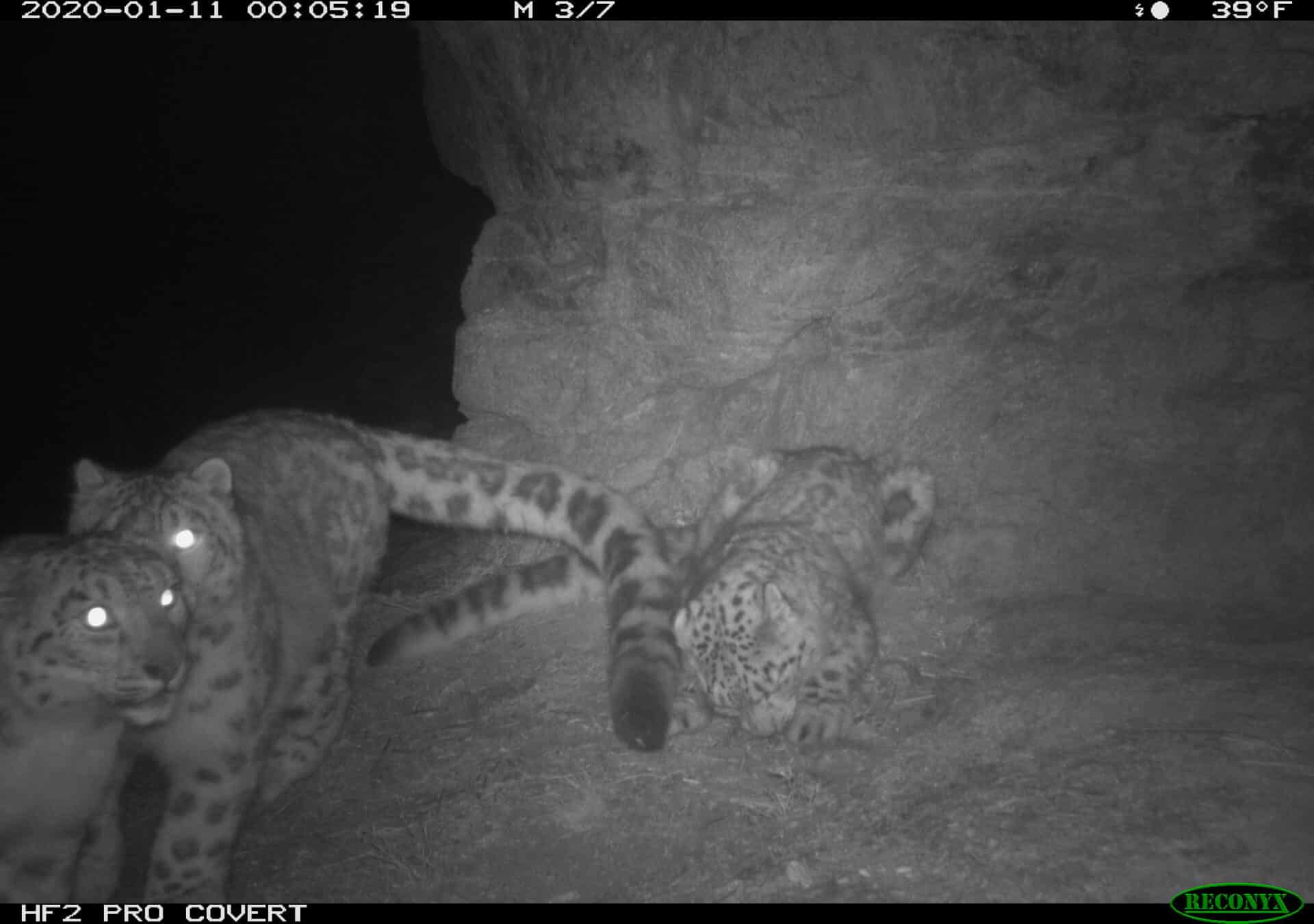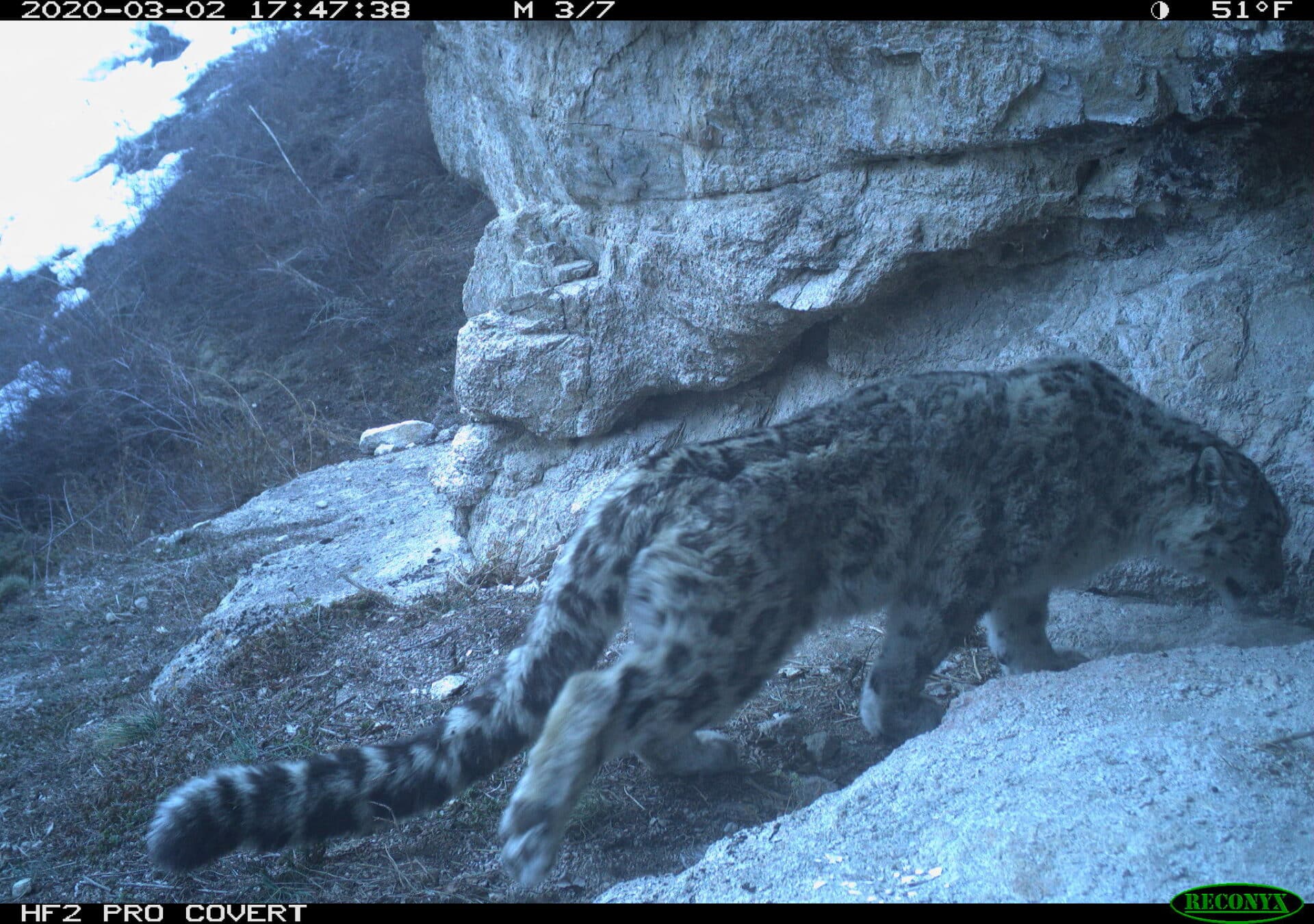Hope for vulnerable wild snow leopards in Kazakhstan
May 26, 2021
May 26, 2021

Camera trap images from Kazakhstan have revealed that snow leopards and other predators including lynx and brown bears previously displaced by human activities have returned to areas near Almaty during local coronavirus restrictions.
With Marwell’s support and a grant from International Union for the Conservation of Nature’s Save Our Species programme, our colleagues at Wildlife Without Borders Kazakhstan and the Institute of Zoology are leading on a project to improve conservation engagement with the citizens of Almaty. The ever-expanding city pushes increasingly closer against the Tian Shan Mountain habitats of snow leopards and our team are working to improve awareness and promote sustainable income generating activities that might otherwise cause problems, such as tourism.
Dina Konysbayeva, Director of Wildlife Without Borders, Kazakhstan, has released a video highlighting the challenges to snow leopards under increasing pressure of urbanisation and human encroachment into their habitats. She explains: “Snow leopards live within the city borders of Almaty, and due to the constant presence of people, they are forced to use hard to reach and unsuitable habitats. This process of urbanisation may lead to severe consequences for this endangered species in the future.
“Our recent studies during the Covid-19 lockdown showed astounding results. Due to the limited access to the mountains by the residents of the city, the snow leopards and other predators began to come back to places where there used to be lots of people, these animals came back to the places they were driven out of by humans decades ago. This has made our team and the residents of Kazakhstan rethink our strategies to nature conservation and revise our attitude towards the use of natural resources. We saw that it is quite possible to conserve nature, one just needs to commit to it.”
The project, which will run until November 2021, contributes to bodies of work Marwell is developing around sustainable landscape management for conservation and the continued integrity of wildlife populations and their ecosystems.
Date posted: May 2021
